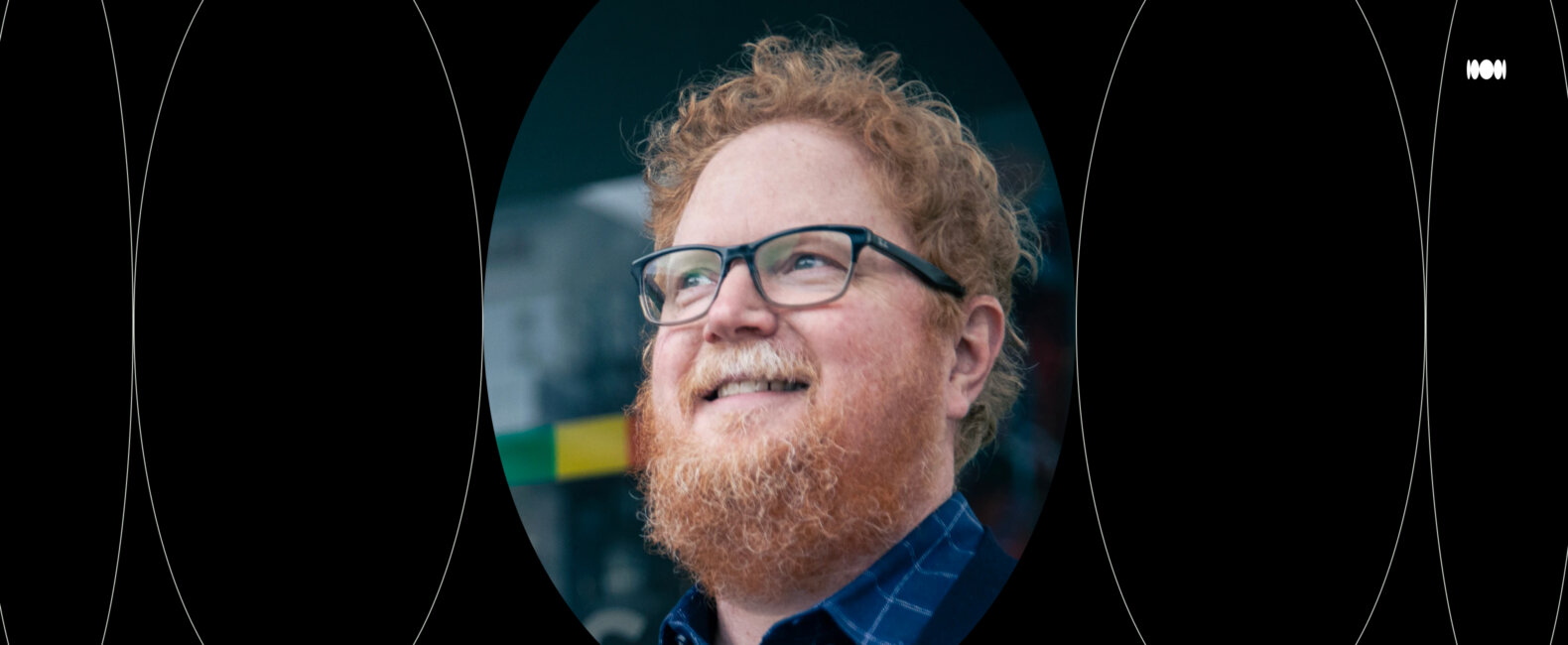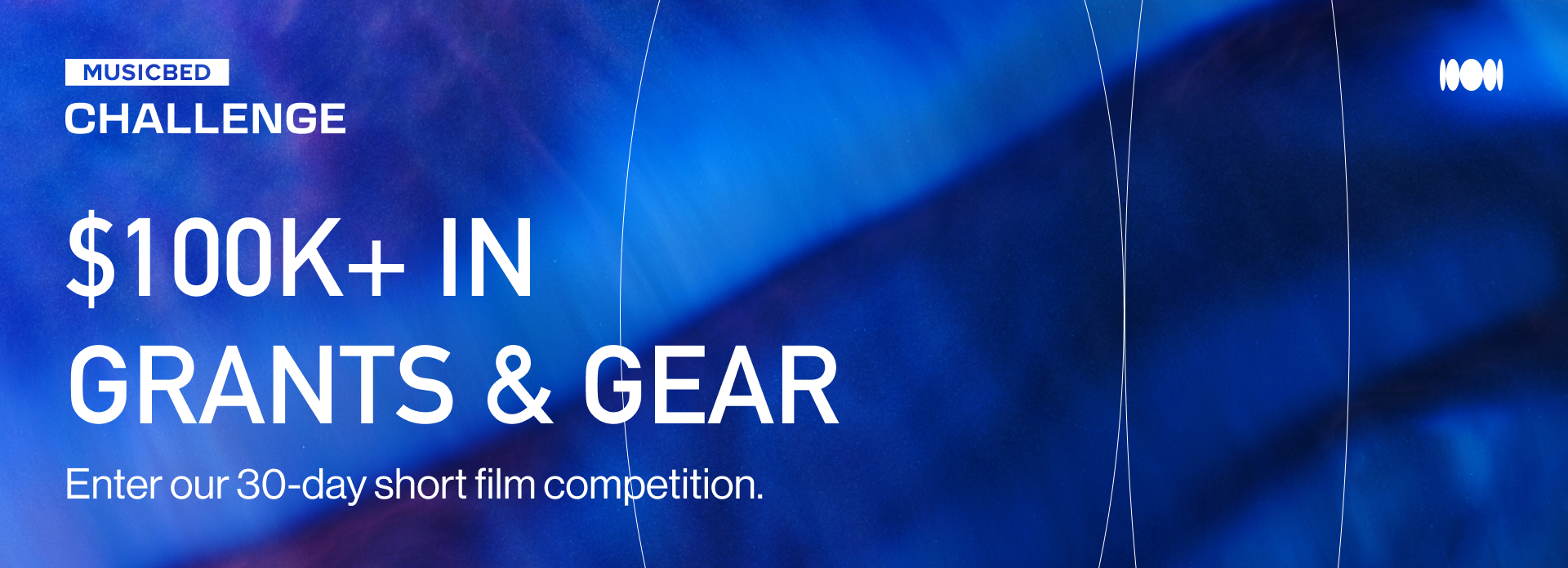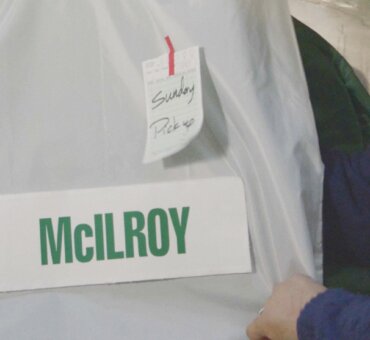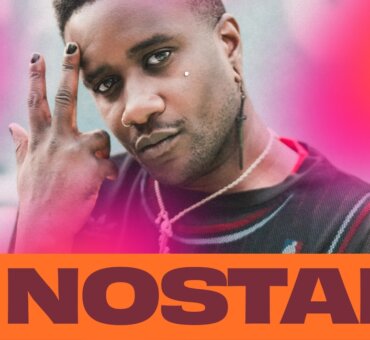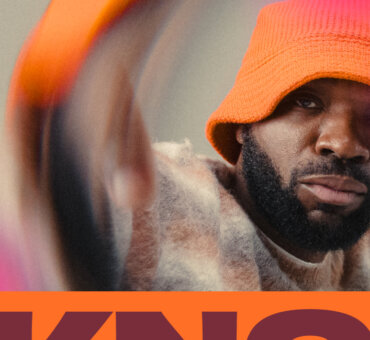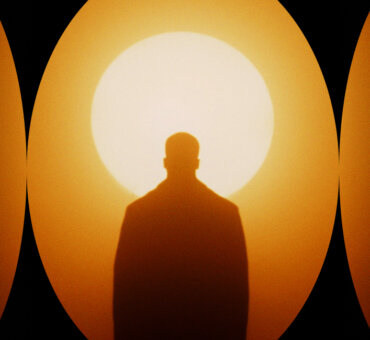For Wes Whitener, advertising isn’t just a job—it’s a playground for creativity. As creative director and co-founder of Guesthouse, he’s built a career on turning overlooked opportunities into celebrated campaigns, from rebooting the “Share a Coke” campaign for Coca-Cola partnerships to unforgettable social media stunts for brands like Mellow Mushroom.
But what drives their approach?
A belief that great advertising starts with fun, collaboration, and a relentless pursuit of the unexpected. In this interview, Wes Whitener reflects on his career, the power of storytelling, and why the best ideas often come from a smiling group of creatives.
MUSICBED: What sparked your interest in advertising? And how did that interest lead you to where you are now as creative director and co-founder at Guesthouse?
Wes Whitener: I honestly fell into advertising. I was part of a band in college, and there was this guy at a local print shop who liked our band so much that he gave me a job in graphic design at his shop, so I got my start there.
I later applied blindly to a job that listed Adobe software as the only needed experience. Turns out, it was at the creative agency McKinney.
There, I quickly realized that my creative background was perfectly suited for this role. I had great mentors who set the wheels in motion for the rest of my career.
So, basically, just doing creative stuff can lead to creative jobs.
And Guesthouse is the perfect extension of that — just finding people who love creating things, starting a project, and making stuff together. That’s when this job is fun. And when it’s fun, you’re doing it right.
What was your first “big break” in advertising?
Wes Whitener: Probably when David Baldwin promoted me to art director to work on Travelocity’s Roaming Gnome launch campaign.
It was the first time a project I had worked on was seen on national TV. It was pretty wild.
That was also when I got paired with my creative partner and co-founder of Guesthouse, Mitch Bennett. We bonded over zombie movies and obscure ’90s alt-rock while making that gnome say ridiculous things all day long.
It was the beginning of a lifelong partnership.
What have been the pivotal moments or projects that shaped your career?
Wes Whitener: Working on Coca-Cola partnership ads like Coke + Six Flags, Coke + NASCAR, and other seemingly minor projects that most agencies overlooked and clients didn’t expect much from—was a game-changer for me.
We took on projects like creating radio ads for the sixth year of Coke’s “Share a Coke” campaign (projects that no other agency would have touched). But our amazing team of creatives put in tons of hours and produced work that got noticed and celebrated.
That experience fundamentally shifted my perspective on advertising and what it could achieve.
Every brief is a chance to do something great, with the right team and the right clients.
How has your background in art direction, copywriting, and brand-building shaped your approach as a creative director?
Wes Whitener: At Guesthouse, we’ve learned that, if you’re in a concepting session or an internal review and no one’s smiling or no one’s laughing or no one’s getting excited, something’s off. Keep going until you get there.
Make fun of the brief if you have to — you’ll find something that lights up the room. That’s when you know the advertising you’re about to make is already working.
During a concepting session, we came up with the idea to stalk people with a giant creepy mushroom costume to help Mellow Mushroom get more social followers. It was pretty much the most fun I’ve ever had in advertising.
The work was well received, and more importantly, enjoyed by real people. So that taught me to chase the fun.
And how has what you’ve learned helped you develop as a storyteller?
Wes Whitener: A few years back, I branched out from the advertising/creative side to explore commercial directing, and that definitely opened my eyes to how important storytelling is to the creative process.
You have to ask yourself, What’s surprising about this concept, and how do we slowly reveal that in a way that builds mystery and draws people in?
If you can zoom in on what’s great/odd/off/moving about a concept, you can find a lot to unpack there: the sound, the visuals, the music, how you frame it up, etc.
What elements do you think are essential for crafting a compelling story?
Wes Whitener: You need at least one of these things for a compelling story: a relatable truth, a surprise, a mystery, or a new way to look at something familiar. A cool camera move or a visual effect alone won’t cut it.
It’s totally okay if you just need to show that there’s a lot of bacon on this new limited-time burger. But if you can find a way to add some story or truth to that promotion, then you’ll help establish a lasting brand image in people’s minds — even after the limited-time offer is gone.
RELATED READS: Eric Floberg’s Compelling Narratives and Visual Stories
Talk to us about your process for selecting the right music for your projects. Where do you start, and how do you make the final decision?
Wes Whitener: In commercials, music is incredibly important. Music instantly tells you how to feel. And when you only have thirty seconds or a minute, music can jumpstart emotion.
I usually start with music I’m connecting with personally as a reference. I can’t pick a song that everyone will like (that’s literally impossible) but I can pick a song that I like — that’s easy.
It makes me feel something, so let’s start there.
And if it’s connecting with me, it will connect with other people, too — even if they don’t like that style of music.
RELATED READS: The Art and Science of Music Selection With Joanna Batemits
Besides music, what other techniques do you use to enhance the emotional impact of your storytelling?
Wes Whitener: I really think everything you do in a commercial or film should add to the emotional impact of your story: the props, the wardrobe, the casting, the sound design — all of it.
If it’s a subtle comedy spot, every touchpoint is a chance to be subtly funny. If it’s a sad story, same deal. And if you look at a production that way, then all the choices you have to make as you go start to come together faster.
What’s something you’ve seen lately where the music really elevated the storytelling? Or is there something you saw where the music hurt the storytelling?
Wes Whitener: Severance is killing it with music this season. I didn’t even think I liked the Stone Roses until I heard them in Episode 3’s opening sequence.
Strange Darling used a cover of “Love Hurts” in a surprising way to set the wild tone of that movie right from the first minute.
The Substance set some of the most disgusting, horrifying imagery I’ve ever seen to a driving, pump-it-up workout video soundtrack, which was both shocking and effective and fitting for the body image as commercialism/body horror of it all.
What current trends in commercial filmmaking or advertising are you most excited about?
Wes Whitener: I’m glad the mentality of “Don’t just make an ad, have a big idea, and make ads about it” is coming back. That’s how you get to work that gets people talking.
Bring more of that, please.
What is it about Musicbed that stands out to you? Why would you recommend Musicbed as a resource for creatives in advertising?
Wes Whitener: I’ve always preferred getting somewhat unknown, more indie bands and artists’ songs on spots vs. just using needle drop. Doing so feels like you’re discovering a new artist with their own point of view and adding to the emotion of the ad.
Musicbed has a lot of great artists just like that to discover.
I’m also a fan of using the AI-powered search with a reference track to find options within your budget. It’s incredibly helpful.
When judging Musicbed Challenge submissions, what’s the one thing you look for that sets great edits apart from the rest?
Wes Whitener: I’m looking for something I haven’t seen before — or something I’ve seen before that’s shown to me in a new, compelling way.
A good idea presented clearly and with personality also goes a long way. You should be able to feel the creative folks behind the ad through the choices they made on on screen.
RELATED READS: The Winners of Musicbed Challenge 2024
This was written as a part of Musicbed Challenge 2025. Want to learn more?















































































